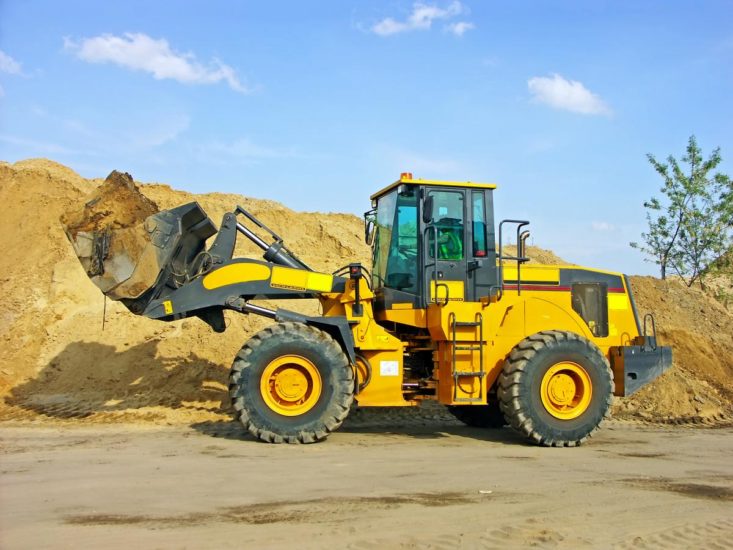Reliable Construction Equipment Rentals for Your Jobs
Reliable Construction Equipment Rentals for Your Jobs
Blog Article
Leasing Vs. Purchasing Construction Devices: Making the Right Choice for Your Project
When embarking on a building and construction project, one of the vital choices that predict managers and stakeholders face is whether to buy or rent out building and construction devices. The choice hinges on various elements such as price considerations, project duration, tools upkeep, scalability, threat, and versatility administration.
Cost Factors To Consider
When reviewing the monetary element of getting versus renting building and construction tools, the long-lasting expenditures and ahead of time expenses have to be meticulously considered. Leasing tools frequently requires lower first settlements compared to purchasing, making it an appealing option for temporary projects or professionals with spending plan restraints. Renting eliminates the demand for big resources expenses and decreases the financial risk related to equipment possession, such as maintenance and devaluation expenses. However, in the long run, constantly renting tools can collect greater costs than acquiring, specifically for prolonged tasks.
On the other hand, getting building equipment entails higher ahead of time costs yet can cause long-term cost savings, especially for regular users or long-lasting tasks. Having devices offers flexibility, comfort, and the possibility for resale worth once the project is finished. Furthermore, owning devices enables personalization and knowledge with details machinery, possibly raising efficiency and efficiency on-site. Eventually, the choice between getting and leasing construction tools pivots on the project's duration, regularity of usage, budget plan factors to consider, and lasting monetary goals.
Task Duration

Conversely, for long-term jobs or ongoing building and construction work, acquiring devices might be the much more affordable alternative. Buying equipment can lead to set you back financial savings in the future, particularly if the devices will certainly be often used. Moreover, having equipment offers a feeling of control over its availability and enables for personalization to fit specific project demands.

Tools Upkeep
Offered the crucial duty job duration plays in figuring out the most economical strategy between getting and renting out construction tools, the focus currently changes in the direction of analyzing the important facet of equipment maintenance. On the various other hand, owning devices requires an aggressive method to maintenance to protect against malfunctions, guarantee safety and security, and extend the my link tools's life expectancy. Ultimately, a well-kept building and construction equipment fleet, whether rented or had, is crucial for the effective and effective conclusion of building and construction jobs.
Versatility and Scalability
In the realm of building and construction equipment administration, the aspect of adaptability and scalability holds substantial relevance for task efficiency and resource use. Deciding to rent building and construction devices offers a high level of adaptability as it permits for the quick adjustment my explanation of tools types and quantities based on the evolving demands of a job.
Additionally, scalability, another important aspect, is naturally connected to flexibility. Leasing construction tools provides the advantage of conveniently scaling operations up or down as task demands fluctuate. Service providers can quickly include or trade equipment to match the task's transforming requirements without the constraints of having possessions that might come to be underutilized or outdated. This capability to scale resources successfully can lead to expense financial savings and boosted job timelines, making renting out a positive alternative for jobs calling for adaptability and responsive source allotment.
Danger Management
Effective threat administration in construction tools procedures is critical to making sure project success and mitigating prospective financial losses. Construction jobs inherently include various dangers, such as equipment failures, crashes, and job delays, which can substantially impact the job timeline and spending plan. By meticulously thinking about the risks related to owning or renting out construction tools, job managers can make enlightened decisions to minimize these possible dangers.
Renting out building tools can provide a degree of risk reduction by moving the duty of repair and maintenance to the rental business. This can minimize the financial concern on the task owner in situation of unexpected tools failings (heavy equipment rental). Additionally, renting out offers the adaptability to accessibility customized equipment for details project stages, minimizing the threat of owning underutilized machinery
On the other hand, here are the findings owning building tools gives a feeling of control over its usage and maintenance. Nonetheless, this likewise implies bearing the complete duty for fixings, upkeep costs, and depreciation, increasing the monetary risks associated with equipment ownership. Careful danger analysis and factor to consider of factors such as job period, equipment application, and upkeep demands are crucial in establishing the most ideal option for effective risk monitoring in construction jobs.
Conclusion
To conclude, when determining between renting out and purchasing building and construction devices, it is necessary to think about expense, job duration, equipment maintenance, versatility, threat, and scalability administration. Each aspect plays a critical function in identifying the most ideal option for the task at hand. By thoroughly assessing these facets, job managers can make an informed choice that straightens with their budget plan, timeline, and total task goals.

Report this page